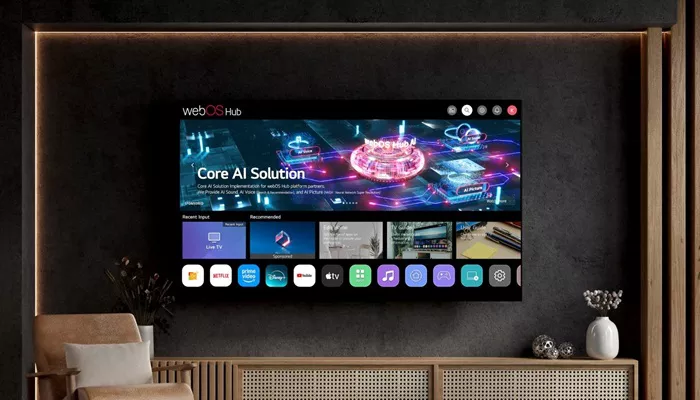LG Electronics has launched a new version of its smart TV software, webOS Hub 3.0, promising a more advanced viewing experience powered by artificial intelligence. However, the update has sparked renewed criticism over the company’s data collection and advertising practices.
The updated webOS Hub 3.0 is built into LG’s OLED and UHD TVs and is also being shared with other brands such as Eko, Blaupunkt, Kogan, and Konka. While LG presents the platform as a user-friendly smart TV system, critics argue that it functions primarily as a powerful data-gathering engine that drives the company’s multibillion-dollar advertising and data sales business.
Billions Earned Through Data and Ads
According to industry analysts, LG earned more than $2 billion last year from data sales and subscription services tied to its webOS platform. The system collects detailed user data—including viewing habits, search history, and even information from USB drives and streaming services.
Although LG claims it anonymizes this data, independent reports suggest the information is highly specific and can still be used for individual tracking and targeted advertising.
Opt-Out Options Questioned
Consumer complaints have grown over what many see as a lack of transparency. Users report that disabling data collection features is difficult, and that data may be gathered even after opting out. Activating a new LG TV and accepting the terms to use webOS effectively grants the company permission to collect and use personal information.
Some reports also indicate that data is being collected through automatic content recognition (ACR) without users’ full awareness.
Security Risks and Vulnerabilities
Security experts have identified potential weaknesses in webOS that could allow unauthorized access to devices and user data. These concerns add to the ongoing debate about the trade-offs between convenience and privacy in smart devices.
AI Features Power New Advertising Push
The new webOS Hub 3.0 includes AI-powered tools like Voice Recommendation, driven by LG’s ThinQ AI platform. LG says these features are designed to improve the user experience, but they also enable more personalized advertising—delivered even before viewers launch streaming apps.
LG Channels, a key part of this strategy, offers over 4,000 free channels in 33 markets, including Australia. This platform not only entertains but also serves as a major channel for data collection and ad delivery.
Global and Local Scrutiny
LG’s data practices have drawn attention worldwide, including in Australia, where consumers and privacy advocates are raising alarms. Critics argue the company’s data policies are hard to understand, and that users are not fully informed about what data is collected or how it is used.
Concerns have also been raised over LG allegedly selling user data to third parties, including political organizations, fueling fears about profiling and misuse.
LG’s Response
LG defends its data practices, saying they are essential for delivering customized content and improving services. The company insists that user data is handled responsibly and that customers benefit from more relevant recommendations and features.
Still, as LG rolls out webOS Hub 3.0 to more devices, questions remain about whether users truly understand the cost of their “smart” viewing experience.

